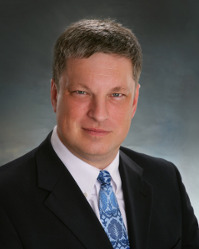
CO-04 (Special Election)
See Full Big Line
(R) Greg Lopez
(R) Trisha Calvarese
90%
10%

President (To Win Colorado)
See Full Big Line
(D) Joe Biden*
(R) Donald Trump
80%
20%↓

CO-01 (Denver)
See Full Big Line
(D) Diana DeGette*
90%

CO-02 (Boulder-ish)
See Full Big Line
(D) Joe Neguse*
90%

CO-03 (West & Southern CO)
See Full Big Line
(D) Adam Frisch
(R) Jeff Hurd
(R) Ron Hanks
40%
30%
20%

CO-04 (Northeast-ish Colorado)
See Full Big Line
(R) Lauren Boebert
(R) Deborah Flora
(R) J. Sonnenberg
30%↑
15%↑
10%↓

CO-05 (Colorado Springs)
See Full Big Line
(R) Dave Williams
(R) Jeff Crank
50%↓
50%↑

CO-06 (Aurora)
See Full Big Line
(D) Jason Crow*
90%

CO-07 (Jefferson County)
See Full Big Line
(D) Brittany Pettersen
85%↑

CO-08 (Northern Colo.)
See Full Big Line
(D) Yadira Caraveo
(R) Gabe Evans
(R) Janak Joshi
60%↑
35%↓
30%↑

State Senate Majority
See Full Big Line
DEMOCRATS
REPUBLICANS
80%
20%

State House Majority
See Full Big Line
DEMOCRATS
REPUBLICANS
95%
5%
 July 05, 2017 10:15 AM UTC
July 05, 2017 10:15 AM UTC 18 Comments
18 Comments
Again: this shows that Establishment Democrats in the Librul North, and any Democrats who might have a state-wide vision (Can't name one. No, not Hick.), have approximately Zero strategic ideas to counter the extreme conservatives and reactionaries who are elected in EPC. Ignoring does not make them go away, ridiculing them only reinforces their strength. And once in state office the local yokels get national influence that harms Colorado and its citizens and (should) put the Democratic Establishment to shame.
Please share your ideas. We wait with baited breath.
What are Democrats trying to hide? If you're right and there's no voter fraud you should not be afraid of any inquiry. The fact that you are means you are hiding something!! I am fine with investigating Mississippi Republicans to find out if Colorado Democrats are committing election fraud…
Your first post after your stupid insult from last week is a gem of Moderatian logic . . .
. . . what a hideous, ignorant putz you are.
As to the issue of inquiry, I'd like you to provide evidence that you can't possibly be as stupid as you act, and that you couldn't possibly act more stupid.
In the meantime, how do you feel about Trump finally releasing his tax returns? You know he’s got nothing to hide, right?
Yeah, Fluffy…how 'bout it? Let's hear you demand the Yams' tax returns. Oh…and the Russia investigation…nothing to hide, there…right?
Yeah, because you are a Nazi. Why don't you ask the mostly Republican county clerks? Do you suppose they are committing election fraud?…or are they just incompetent? Which is it, oh, Fluffy One?
Dio – Moldy has been busy protecting us from NPR.
Some Trump supporters thought NPR tweeted ‘propaganda.’ It was the Declaration of Independence.
ROFLMAO…..

If you're right and there's no voter fraud you should not be afraid of any inquiry.
Because a certain loud mouth whose name shall not be mentioned will take the mere existence of any type of investigation and scream that someone must be guilty. Remember Benghazi?
Besides, didn't your buddy, Scott Gessler do a thorough enough job uncovering voter fraud?
If your people are so determined to investigate something, why not try to uncover the whereabouts of Senator Gardner these days.
Doing something evil. Or not. Not everything he does is evil.
Yeah Moldy. Who cares about personal privacy? Certainly not Trump or partisan GOP hacks. But, hey what’s wrong with risking identity theft of a whole bunch of US citizens if we can weed out a single digit number of bad apples.
Get your ACA article yet?
Nope. Moldy better get on it. Seems his mouth (or fingers) are writing checks his brain can't cash.
I'm not afraid of an inquiry. I don't trust those who are conducting the inquiry, and they've given us no reason to trust them. Republicans are using this as a pretext to deny constituencies that don't typically vote for them (because Republicans quite pointedly don't like them) their right to vote.
Actually, the right to vote is a protected constitutional right…sort of like owning guns. I'm not sure we should even be required to register to vote.
https://www.theatlantic.com/national/archive/2012/09/voting-right-or-privilege/262511/
Don't bet on the "opt out" working..
From the SOS website:
Q. Who can enroll in the ACP?
A. There are three eligibility requirements:
1. An applicant must be a survivor of actual or threatened sexual assault, domestic violence, or stalking/harassment who fears for his or her safety (those who live with an enrolling survivor are enrolled as “co-applicants”).
2. The survivor must provide evidence of victimization. There are many ways to meet this requirement. Evidence examples include: police reports, protection orders, agency documents or a letter from a professional who has provided the survivor with counseling, referral or other services.
3. The survivor has relocated within the past 90 days or is planning to relocate. The best time to enroll is when a survivor is planning to move to a location unknown to their abuser or has recently moved and has not yet created any public records.
If one is a progressive living in the failed 51st-state, can we be considered survivors of harassment, fearing for our safety? I'm only slightly kidding.
HAHAHA Colorado Pols realized this would hurt their GOTV! You're such tools.
I realize the interweb reception is fuzzy in Grammy's basement so perhaps you've missed the fact our state, the top performing economy in the nation, has been ruled by Democrats, practically in whole-cloth, for the past 13 years?
Yeah we're scared to death about GOTV. What a moran.
PS: thanks again for that vote to keep our rural hospitals open. Even a blind squirrel stumbles upon a nut every now-and-then.